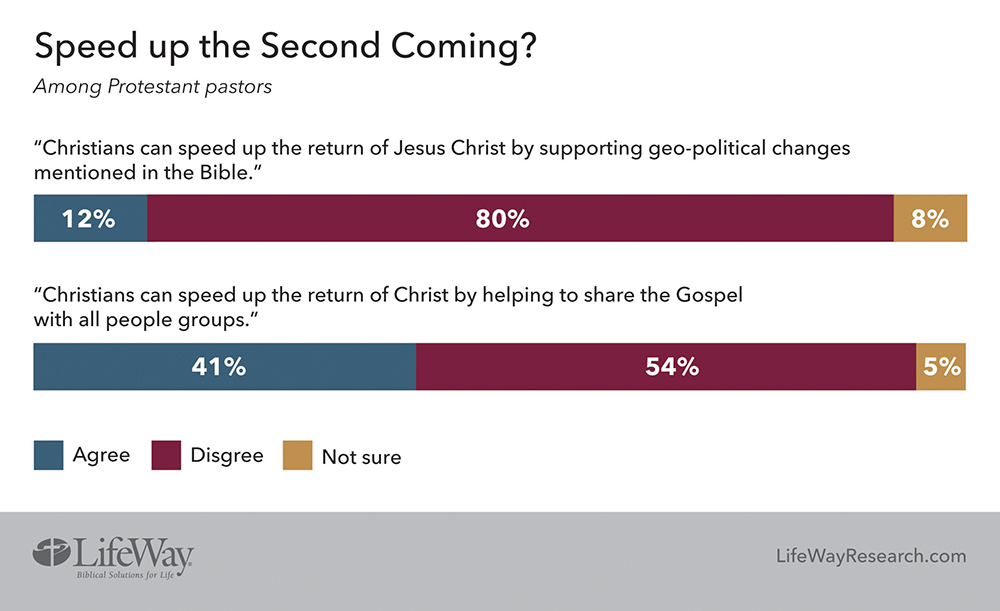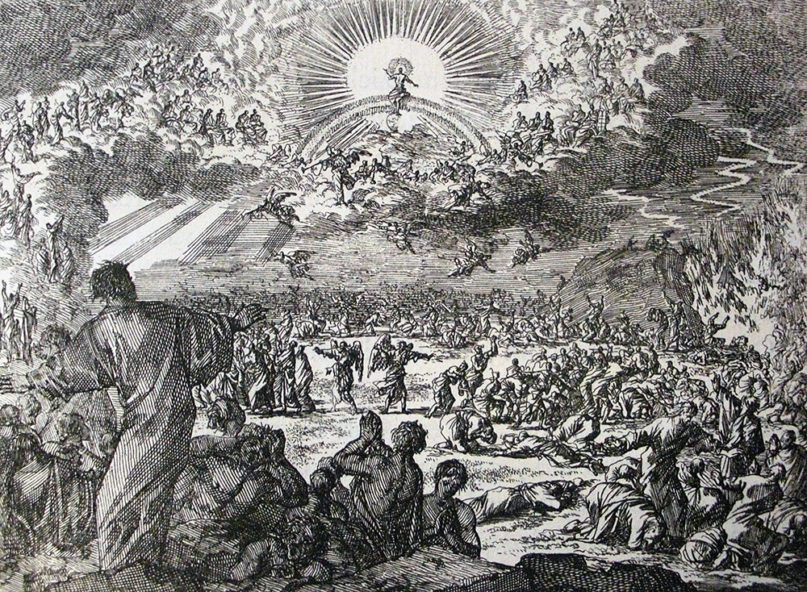(RNS) — A new LifeWay Research survey of American Protestant pastors reveals that most don’t believe they can speed up Christ’s return by supporting geopolitical changes mentioned in the Bible, but most predict the world will enter a period of moral decline before Jesus comes back.
According to the poll, which was released on Tuesday (Jan. 14), only 12% of Protestant pastors in the U.S. said they strongly (5%) or somewhat (7%) agree with the idea that Christians can hasten the Second Coming by backing particular international political developments.
The survey did not name any specific events sometimes associated with bringing about Christ’s return, such as activities in Israel and the occupied Palestinian territories. In his 2006 book, “Jerusalem Countdown,” televangelist John Hagee described a future situation in which an Israeli or U.S. strike against Iran would set in motion an “inferno (that) will explode across the Middle East, plunging the world toward Armageddon.” Similarly, Texas pastor Robert Jeffress, a spiritual confidant of President Donald Trump, argued in 2014 that then-President Barack Obama was “paving the way” for the Antichrist — a precursor to the end times — by supporting same-sex marriage.

“Speed up the Second Coming?” Graphic courtesy of LifeWay Research
While LifeWay’s survey suggested few clergy would make similar claims today, it also noted variations. Pastors with no college degree were listed as more likely to agree (22%) that Christians can hasten the Second Coming by supporting certain geopolitical events than those with a bachelor’s degree (10%) or a master’s degree (10%). What’s more, pastors age 65 and older were more likely (16%) to agree than pastors age 18-44 (9%).
Lutherans were the most opposed to the idea, with 92% of those surveyed saying they somewhat or strongly disagreed.
By contrast, 41% of pastors strongly (28%) or somewhat (13%) agreed with the idea that Christians can speed up the return of Christ by sharing the gospel with all people. Pastors age 65 and older were the most likely to agree (52%), and once again education appeared to play a role in shifting sentiments: Pastors with no college degree were more likely (56%) to agree than those with a bachelor’s degree (35%) or a master’s degree (38%).
Among religious groups, Pentecostals were the most likely to agree with the idea, with 66% arguing that widespread evangelism will bring about Christ’s return.
Many Christians point to verses in the biblical Book of Revelation that refer to members of “every nation” standing before God, believing it implies the need for widespread conversion.
Most pastors also espoused a gloomy outlook for the world’s ethical future: 20% agreed somewhat and 47% strongly agreed that culture will increasingly get less moral until Jesus Christ returns. Even so, the concept exposed theological divides: Evangelical pastors were listed as far more likely to agree than mainline pastors — 80% compared with 51%. In addition, male pastors were far more likely (72%) to agree than female pastors (44%).
The phone survey of 1,000 Protestant pastors was conducted Aug. 30-Sept. 24, with a sampling error of plus or minus 3.3 percentage points. For subgroups, the margin of error was higher.





